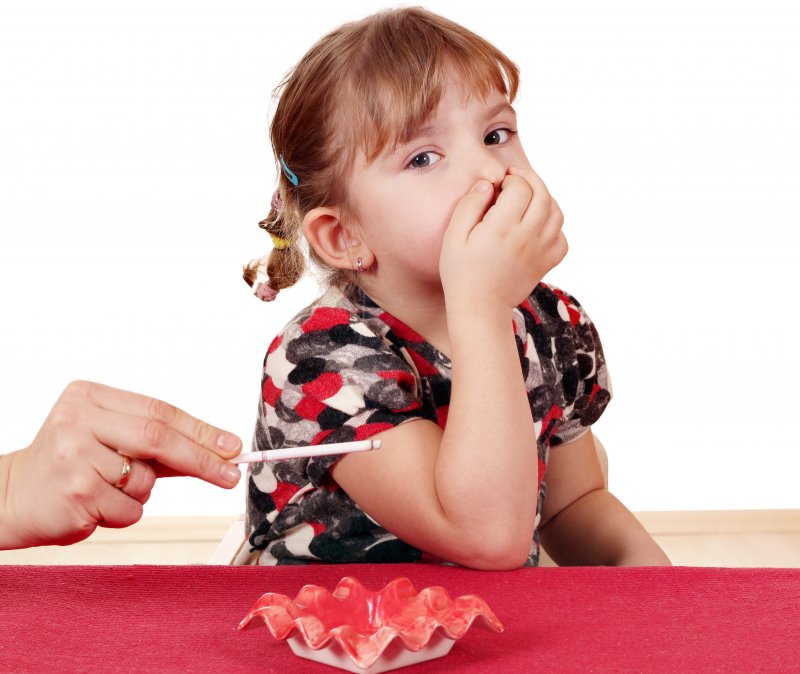
You may not be concerned about the effects your smoking might have on your own body, but have you given any thought to what it might be doing to your children? Secondhand smoke can have all sorts of dangerous side effects, and for young children that might include an increased risk of obstructive sleep apnea – a disorder that will stop them from getting the quality rest they need to grow up healthy. Read on to learn why smoking during the day could cause your little ones to have a restless night.
What is Obstructive Sleep Apnea?
Having obstructive sleep apnea means your child will stop breathing multiple times during the night because their airway has been blocked. Naturally, the drop in oxygen levels can be extremely harmful to their still developing body. But that’s not all; if breathing is interrupted while they’re asleep, they’ll wake up so that they can get some air. In other words, your child will keep waking up throughout the night and won’t get nearly enough of the sleep they need.
The Link Between Sleep Apnea and Secondhand Smoke
Sleep apnea is actually very rare in children, having only a 4% prevalence rate. However, a study published in the International Journal of Pediatric Otorhinolaryngology found that the odds of children between the ages of 3 and 18 developing the disorder became much higher if they were exposed to secondhand smoke. Furthermore, such children were also more likely to suffer from a more severe form of sleep apnea.
A cause and effect relationship between secondhand smoke and sleep apnea has yet to be established. Other risk factors include obesity, enlarged tonsils, a small jaw, craniofacial syndromes, muscle weakness, or Down syndrome.
How Will You Know If Your Child Has Sleep Apnea?
Have you noticed that your child is unusually sleepy during the day or that they have difficulty paying attention? This can be a telling sign that they’re not getting enough quality sleep. When they go to bed at night, take the time to listen to them. You should be concerned if you hear snoring or notice pauses in breathing.
Of course, the only way to 100% confirm that your child has sleep apnea is to have them undergo a sleep study. A special device will be used to monitor their vital signs during the night in order to narrow down the nature of their condition. Once they’ve been diagnosed, a sleep dentist in State College can help you explore treatment options.
Don’t Let Your Little Ones Live with a Sleep Disorder
Your child shouldn’t have to suffer from breathing interruptions night after night. If you find out that they have sleep apnea, you should take every step necessary to relieve their symptoms. This could mean giving up your own smoking in addition to treatments such as oral appliance therapy; talk to your sleep dentist to figure out what needs to change.
About the Author
Dr. Donald Marks is a proud lifelong resident of Pennsylvania who became a dentist so that he could combine his artistic talent with his scientific knowledge. His sleep clinic, State College Dental Sleep Medicine, offers sleep apnea solutions for patients of all ages. To schedule an appointment for your child, visit his website or call (814) 234-0329.
